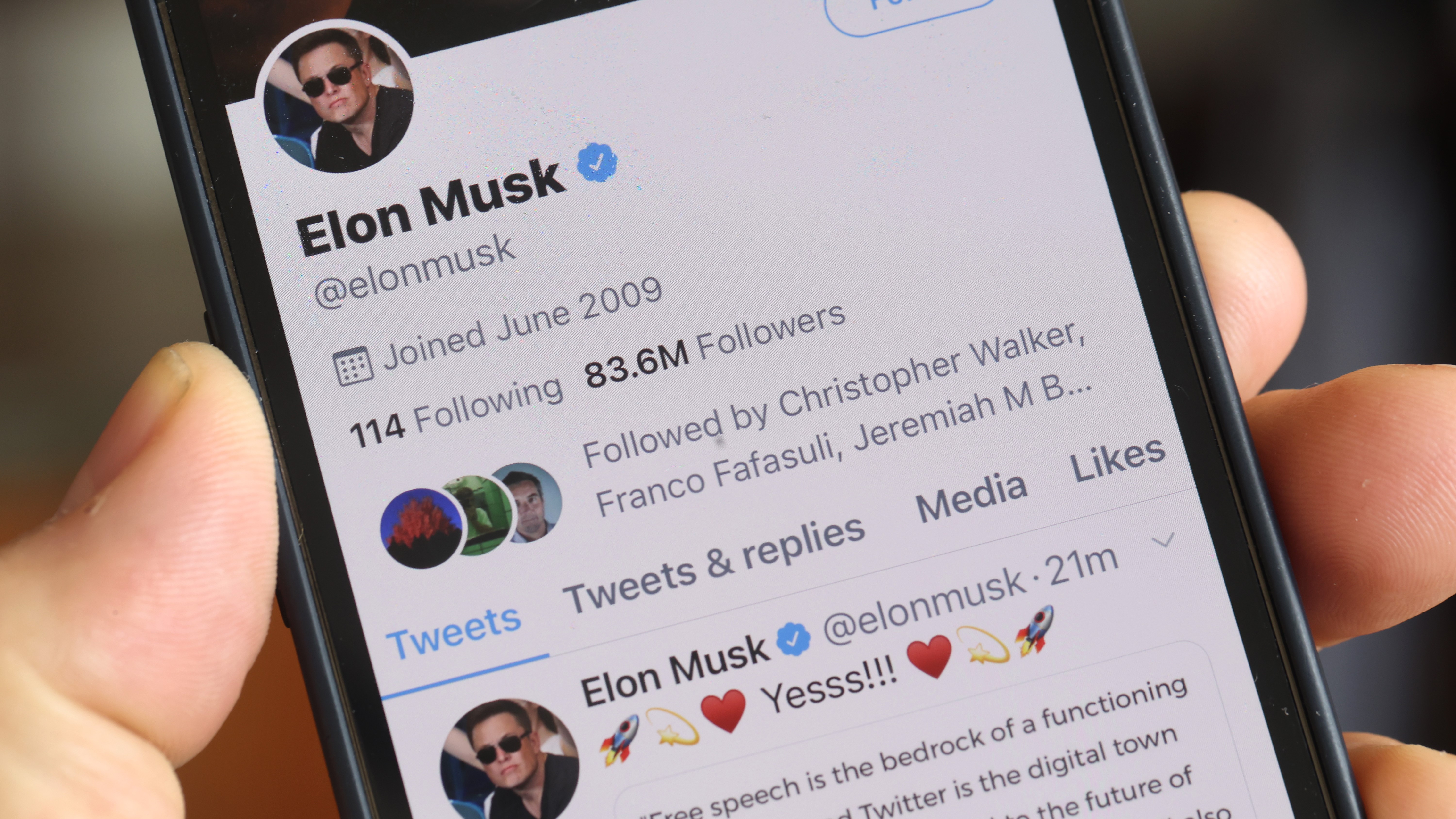Elon Musk will run Twitter into the ground
Tough ethical issues and impending regulations mean the billionaire is wholly unsuited to running a social media company


There are many things I despise Elon Musk for, including posing as an engineering genius, never shutting up about tunnels, allegedly avoiding tax despite being one of the richest men in the world, dating Grimes, and now: buying Twitter.
It was all supposed to be a meme: a billionaire with an overinflated ego tries to buy a social media company, their effort fails, we Tweet about it and move on. It seemed Musk’s initial gambit, only days after becoming a stockholder, was set to be blocked. The $44 billion (roughly £34.5 billion) offer, though, was reconsidered and ultimately accepted on Monday.
I’d be lying if I said I was surprised. After all, this isn’t the first time we’ve seen somebody buy themselves a job on a whim, despite having little-to-no qualifications for said position. It's one thing to run companies that build rockets and batteries; stepping into the murky, messy, depraved world of social media – especially a platform like Twitter – is a totally different prospect, and comes with challenges Musk is unprepared to handle.
From uncomfortable moral and ethical issues to public policy and regulation, Twitter, like Facebook and YouTube, is a minefield. The platform has been accused of playing a key role in the growing threat to democracy in the way its algorithms have promoted fake news. This comes alongside the prevalence of bots, and failing to crack down on online abuse. Although Twitter has made attempts to fix these problems, event its greatest fans would agree it’s still in need of urgent help. Musk, a libertarian who describes himself as “half Democrat, half Republican" and whose track record is littered with accusations of fraud and impulsively inflammatory remarks, is only likely to drive the social network into the ground.
After all, despite calling for even his “worst critics” to remain on Twitter “because that is what free speech means”, Musk has a track record of blocking journalists for daring to question his genius. On the other hand, his self-identification as a “free speech absolutist” for refusing to block Russian news sources – despite their role in peddling complete falsehoods on the invasion of Ukraine – renders him ideologically incapable of wrestling with these issues. He also doesn’t seem to even understand content moderation and its real-world impacts, which he demonstrated when questioned by Chris Anderson.
The sale has arguably gone through at the worst possible time for Musk, meanwhile, given the impending wave of regulations about to hit Twitter and other social media networks. The EU recently launched its Digital Services Act, for example, with strict new rules governing online content.
Not only is the UK also set to impose strict GDPR-style fines for failing to clamp down on abuse and misinformation, but executives may also face criminal charges in the most extreme cases. Running a social media, too, means stepping into the public realm, and adopting a sense of responsibility that hasn’t yet been properly defined – something Mark Zuckerberg has been wrestling with for years. Can you imagine Elon Musk, who once paid roughly £40,000 to find incriminating evidence against a cave rescuer he famously labelled a “pedo”, accounting well for himself at a DCMS select committee hearing?
Get the ITPro daily newsletter
Sign up today and you will receive a free copy of our Future Focus 2025 report - the leading guidance on AI, cybersecurity and other IT challenges as per 700+ senior executives
What I’m secretly hoping for, however, is that Elon Musk finds Twitter to be an absolute curse. In the best-case scenario, he realises being wealthy isn’t a suitable prerequisite for taking on just any ambitious role, especially one far outside his field of specialisation. In the worst case, his business credentials sink to Trump’s level after messing up Twitter so badly it becomes little more than an audience of botnets. All the while, an irreplaceable networking tool for millions of businesses and professionals is lost for good
Having only graduated from City University in 2019, Sabina has already demonstrated her abilities as a keen writer and effective journalist. Currently a content writer for Drapers, Sabina spent a number of years writing for ITPro, specialising in networking and telecommunications, as well as charting the efforts of technology companies to improve their inclusion and diversity strategies, a topic close to her heart.
Sabina has also held a number of editorial roles at Harper's Bazaar, Cube Collective, and HighClouds.
-
 Bigger salaries, more burnout: Is the CISO role in crisis?
Bigger salaries, more burnout: Is the CISO role in crisis?In-depth CISOs are more stressed than ever before – but why is this and what can be done?
By Kate O'Flaherty Published
-
 Cheap cyber crime kits can be bought on the dark web for less than $25
Cheap cyber crime kits can be bought on the dark web for less than $25News Research from NordVPN shows phishing kits are now widely available on the dark web and via messaging apps like Telegram, and are often selling for less than $25.
By Emma Woollacott Published